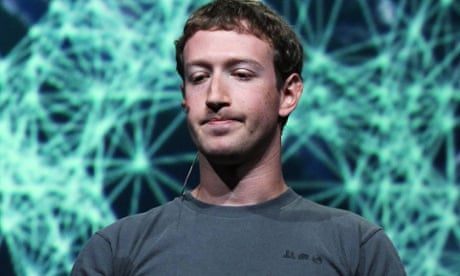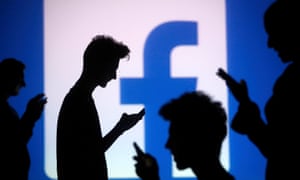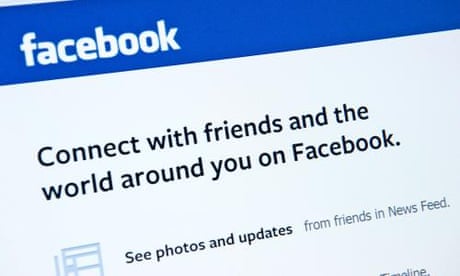Google to comply with EU search demands to avoid more fines
Google will comply with Europe's demands to change the way it runs its shopping search service, a rare instance of the internet giant bowing to ...
亞馬遜的Alexa和微軟的Cortana很快將相互兼容 | |||
|
2017年8月31日 星期四
Google to comply with EU search demands. Google Assistant Expands Into Apple Homepod's Territory ;亞馬遜的Alexa和微軟的Cortana很快將相互兼容
2017年8月24日 星期四
Robert Reich'comments: Amazon Quickly Employs Its Ruthless Playbook on Whole Foods
Amazon has begun its takeover of the supermarket industry. Two big announcements have sent the shares of other grocery chains into a $12 billion slide.
1) Amazon will cut prices on some Whole Foods goods. This is nothing new. The tech giant routinely cuts prices on popular items to make it appears as though they offer lower prices across the board.
2) Amazon Prime customers will have special access to Whole Foods deals. This is the announcement to watch.
60 million people are Prime subscribers. This massive network will allow them to blow their competitors out of the water. Within 10 years they'll all be gone, expect maybe Wal-Mart, who has recently partnered with Google to challenge Amazon for control of the market.
Amazon's dominance will hurt consumers. Incredible market power will allow the company to raise prices and squash any potential newcomers. Their dominance will also give them increased power over the political system. We see similar mergers by other tech giants. They could very well gain an unprecedented grip over our economy and politics, unless we rein them in.
What do you think?
E-commerce giant wastes no time in rolling out its proven market-share attack.
BLOOMBERG.COM
2017年8月23日 星期三
Google and Walmart, sittin' in a tree...
Walmart and Google Are Taking On Amazon with AI
Walmart, the world’s biggest retailer, has always struggled to crack online sales. Now it appears to be admitting defeat and working with Google to take on the Jeff Bezos e-tail empire.
In a blog post announcing the partnership, Google explains that the pair will seek to shake up consumerism using AI. In particular, Google hopes to use its AI butler app, Assistant, to help customers automate orders. If they're willing to stomach the privacy intrusion, people will be able to link their Google account with their Walmart one to get better predictions about what to pop in their shopping basket. Elsewhere, Google also hopes that consumers will use its smart speaker, Home, to simply ask for items as they wander around their house.
Google and Walmart, sittin' in a tree...
Walmart, the world’s biggest retailer, has always struggled to crack online sales.
TECHNOLOGYREVIEW.COM
"- Sitting In A Tree"... something you add to an abbreviation of a cute couple's initials which implies the old first love rhyme "____ and ____ sitting in a tree, K-I-S-S-I-N-G, first comes love, then comes marriage, then comes baby in a baby carriage" (awesome preggers)
Usually reserved for couples that are capable of fairytale like endings or happily ever afters
Usually reserved for couples that are capable of fairytale like endings or happily ever afters
e-tailing
(also E-tailing, etailing, eTailing)
NOUN
Retail activity conducted via electronic media, especially the Internet.
Origin
1990s; earliest use found in Wired. From e- + -tailing.
2017年8月18日 星期五
Google 退出中国内幕: GuGe: Google's Moral Dilemma in China In "The Plex: How Google Thinks, Works, and Shapes Our Lives "
In The Plex: How Google Thinks, Works, and Shapes Our Lives is a 2011 book by American technology reporter Steven Levy.
Book Contents
- The World According to Google: Biography of a Search Engine
- Googlenomics: Cracking the Code on Internet Profits
- Don’t be Evil: How Google Built Its Culture
- Google’s Cloud: Building Data Centers That Hold Everything Ever Written
- Outside the Box: The Google Phone Company and the Google TV Company
- GuGe: Google's Moral Dilemma in China
- Google.gov: is What’s Good for Google, Good for Government --- or the Public?
- Epilogue: Chasing Taillights
http://www.williamlong.info/archives/4918.html 已改正錯字
美國著名科技專欄作家、前新聞周刊(Newsweek)資深編輯史蒂文.勒維(Steven Levy)發表新書《谷歌內幕:谷歌的所思、所為和對我們生活的影響》(In The Plex:How Google Thinks, Works and Shapes Our Lives),首次向外界披露了谷歌的成長、發展、在中國面臨的道德挑戰,在西方社會引發深刻的反思。
本書作者在日前接受采訪時表示,這是谷歌史無前例地允許一名新聞記者深入谷歌公司內部,進行長達3年的“零距離”實地觀察,從加州灣區山景城(Mountain View)的公司總部,到北京海淀區中關村的谷歌駐北京辦公樓,史蒂文.勒維對數百名谷歌高層管理決策者、僱員、前僱員、客戶、競爭對手、用戶進行大量的深入訪談,翔實地記錄了谷歌----一個時代的弄潮兒,踏著信息時代的衝浪板,在風尖浪頭上的故事。
本書披露了許多不為外界所知的內幕,甚至谷歌內部員工都不知道的事件,尤其是谷歌從進入中國大陸到宣布撤出的過程和真相。
以下內容是本書的摘要。
谷歌內幕:谷歌的所思、所為和對我們生活的影響
2010年1月12日,在經過幾週的掙扎後,Google公司最高決策層----包括公司創始人佩奇(Larry Page)和瑟布林(Sergey Brin),以及首席執行官施密特(Eric Schmidt),終於做出了Google公司歷史上最重大、也是最尷尬的決定:把服務器從中國大陸撤出。
這離2004年1月,Google公司高層在內部的一個會議上決定考慮進入中國市場只有6年的時間。在那個會議上,公司高層宣布“中國是Google重要的戰略市場”。
這6年中,Google經歷了許多前所未有的事情。
朋友還是敵人?
2004年的春天,Google公司負責政策的高管安德魯麥考林(Andrew McLaughlin)親自率領一個先遣隊到中國考察訪問,這是Google進入中國的破冰之旅。在這次中國之旅中,麥考林和隨行人員和許多人見了面,包括來自中國政界,商界,科技界、學術界的人士,其中有一位是中國互聯網協會的理事長,她非常興奮地表示,Google進入中國不僅將對(Google)公司有利,而且對中國有利。
麥考林回到美國後,向Google決策層匯報了他在中國的所見所聞,Google首席執行官施密特讓麥考林做一個分析報告,並給他出了一個難題“Google應該如何對擴大中國的信息自由產生正面影響:是進入中國呢,還是不進入中國呢?”
麥考林用了近一年的時間做這個分析報告,並試圖回答這個難題,為了對中國更了解,他幾乎每兩個月就要訪問中國一次。他還經常跟Google的兩個創始人--布林和佩奇共同商議。
2004年10月,在麥考林的再三敦促下,Google的兩位創始人決定訪問中國,親自看一看中國大陸的情況。副總統戈爾擔心這兩個斯坦福大男孩太天真,特地提醒他們到中國出訪,要處處小心。
Google的這兩位創始人,渾然一副大男孩的形象,背著雙肩包、腳登著滑板、走哪都插科打諢,滿不在乎, 看不出是經常坐著波音專用機767-200到全世界兜風,有上億美元身價的世界巨富。
布林和佩奇到了中國後,在訪問百度公司時,百度總裁李彥宏邀請他們吃Subway三明治,布林和佩奇拒絕了。
在訪問中國期間,所到之處,人們用異樣的眼光打量著Google的創始人:他們是朋友還是敵人?
Google的妥協
從中國回來後,那個解不開的難題仍然困擾著Google最高決策層,尤其是創始人布林,他出生在前蘇聯,小時候在父親的帶領下,全家逃離蘇聯,投奔自由社會。
麥考林認為,如果Google進入中國大陸那樣的社會,等於掉進了大染缸,無法做到潔身自好。“你不得不跟壞人打交道,迫使你也配合他們做壞事”。
最終的決定還是有公司的最高決策層來做出:首席執行官施密特主張進入中國大陸,布林一直對此感到不安,佩奇是中間的調和者,他認為進入中國將對中國是一個衝擊。
終於,在2004年10月,Google公司宣布了“進入中國的計劃”,他們決定給中國用戶“最大可能的自由信息”,這是一個向中國妥協的計劃,那就是,給中國用戶提供的信息是被中國過濾了的,為了盡量維持“不作惡”的原則,Google採取的折中法是,在顯示被中國過濾後的搜索結果中,告訴中國用戶這個搜索結果是不完全的,同時提供一個不受中國過濾的搜索引擎,這個搜索引擎是被中國封鎖的,中國民眾看不到。
李開復領導下的谷歌中國
Google中文域名的前期準備活動正在有條不紊的進行之中,直到2005年5月7號,一份意料之外的電子郵件飛進了埃里克·施密特(Eric Schmidt)收件箱中。這份郵件來自微軟一位名叫李開復的計算機專家兼高層。“我已經聽說Google正準備進軍中國市場。”他在郵件中寫道:“我想告訴你的是,如果Google真有意在華大干一番,我會有興趣跟你談談。”
李開復是一位有名的計算機專家(他此前為蘋果公司效力),在中國他已經成為一股熱潮。李開復這位在台灣長大,在卡內基梅隆大學獲得PhD學位的計算機專家儼然已經成為“海龜”一詞的代言人,這位亞裔工程師在美國取得的成就只是他回國前奏,好讓他為歸國後為中國衝擊世界經濟巔峰繼續貢獻一己之力。李開復或許是所有海龜中最知名的一位。中國無數年輕人訪問他的網站,寫信給他尋求建議,彷彿他是沃倫·巴菲特,比爾·蓋茨,阿比蓋爾·範·布罕三者的合體。
Google立刻意識到李開復將會極大的加快Google進軍中國市場的步伐,讓Google在中國市場上抹上濃墨重彩的一筆。“我差不多是強調我們要全力以赴,如狼群一般將他(李開復)搞到手”。Google的高級副總裁喬納森·羅森伯格(Jonathan Rosenberg)在給高層同事郵件中這樣寫到。
因此,2005年5月27日的時候,李開復飛往加州山景城與Google創始人謝爾蓋·布林和拉里·佩奇做了會面。會面上三人相談甚歡。布林踏著滑板而來,問李開復,“你不介意我活動活動下身子吧?”,接著他一邊在地板上活動身子,一邊問李開復一些問題,李開復見到這一幕頗受震動。在兩位創始人離開的時候,李開復聽到其中一位對另外一位說道:“李開復這樣的人不可多得。”當李開復回到西雅圖時,他就收到Google寄來的一大箱東西,其中包括一個籃球,一把椅子,以及一台帶有Google標誌的投幣口香糖丸販賣機。
李開復於2005年7月18日從微軟辭職。並在第二天正式接受了Google的邀請。這份邀請價值1300萬美元,其中就包括250萬美元的簽約獎金。在他的中文網站上,李開復稱Google對待技術的全新方式讓他頗受震動,並認定在中國,他手下新僱員年輕,自由,坦蕩以及真誠的品質將會創造奇蹟。“我有權利作出自己的選擇”,他寫道,“我選擇Google,我選擇中國。”
微軟匆忙跑到法院,起訴李開復違反了僱傭合同中的非競爭協議。但是在9月13日的時候,法官史蒂文·岡薩雷斯(Steven Gonzalez)裁決李開復禁止分享專利信息或是在搜索和語音識別技術等競爭領域為Google提供幫助,但他能夠參與Google中國的籌備和人才招募。最終兩個公司達成和解,對李開復工作範圍的限製到2006年將會解除。
2006年4月,埃里克·施密特與李開復共同揭曉了Google的中文名稱:谷歌。
Google.cn於2006年1月27日正式上線。幾個月後,Google中國搬進了新辦公室。新辦公室佔據了大樓的幾個樓層,這棟閃爍著微光的大樓彷彿是用龐大的白色樂高積木和玻璃搭建而成。清華科技園坐落於北京北面的海淀區,這棟大樓只是這個“中國矽谷”中若干類似建築中的一棟。Google中國的總部佔據大樓的數個樓層,其中配備了一些常見的花哨玩意兒:鍛煉球(physio balls),桌上足球,一間全套的健身房,一間按摩房,以及一間入鄉隨俗的卡拉OK房,一台跳舞機,除此之外還有一間免費的大型自助餐廳。
想招人不是難事。只要李開復入主Google中國的消息傳開,簡歷就會如雪花般飄來。李開復的招聘之旅如同搖滾巡演,學生私自販賣著假票。Google的工程部主管艾倫·尤斯塔斯(Alan Eustace)曾隨同李開復體驗過一次,對於人們蜂擁而來包圍他的情形心有餘悸。那架勢猶如亞洲版的披頭士熱潮。“他在一所大學做演講,那情形就像是一場籃球賽——觀眾席上坐了2000人”,他說。“他真的是被上百學生圍著。人們靠近他只為了,只是為了與他接觸。”
從一開始,關係緊張的跡象就已顯露
Google曾希望,在cn域名上按照政府審查要求架設搜索引擎,以換取公平待遇。但即便Google推出了cn網址,還有跡象表明Google作出的這一妥協仍未讓中國當局滿意。網絡服務中斷仍時有發生,而無人出面解釋。(於此同時,Google的競爭對手百度似乎不會波及)。就在Google獲得運營許可的2005年12月,中國當局就宣布運營許可不再有效,指責Google經營活動沒有清晰的表明它是一家互聯網服務商還是一家新聞門戶。(外國人不得染指後者),Google開始了長達一年半的漫長協商,來重新獲得經營許可。
Google終於在2007年6月的時候獲得許可。所有爭論都在幕後秘密解決的。另外,在很大程度上Google提供的服務也開始穩定下來。那年獲得另外一個重大進展就是Google批准了另外很有意義的讓步:在地址欄中輸入g.cn,中國用戶就可以訪問Google.cn網站。但到那個時候,不少中國人就開始把Google視作不受歡迎的外人,而且服務極不穩定。
因為Google公司有規定禁止在中國境內存儲用戶個人數據(避免碰到政府要求Google交出用戶個人數據的情況),因此Google沒有為中國當地用戶提供Google的其他諸多關鍵服務。沒有Gmail郵箱,沒有Blogger博客,沒有Picasa相冊。其他一些服務被改動的面目全非。Youtube更是被完全屏蔽。
隨著中國本土僱員陸續加入,新人中有不少人花了很長一段時間才適應Google做事風格。比如,Google公司的全球政策中有這樣一條,員工可以抽出20%的工作時間從事個人獨立項目,許多新人對此非常不適應。山景城來訪的高管經常告訴工程師們做20%時間的個人項目無需高層批准。不過Google工程最為關心的還是他們缺乏(或者說是沒有)訪問Google產品代碼庫的權限。Google是一家協作性的公司,公司希望全球各個分公司的工程師都可以在現有產品上創新,製作出令人激動的新產品來。公司給工程師提供訪問產品代碼庫的權限,允許他們這樣做。沒有這樣的訪問權限,工程師們被限定在各自的工作職責之內。
不同於其他地方的Google員工,Google中國的員工不享受這樣訪問權限。這一限制限定了工程師的能力——並給人帶來一種中國員工是二等僱員的印象。“有時,我甚至感覺到如果不給他們訪問權限,這些工程師會鬧事。”Google中國經理人本·魯克(Ben Luk)這樣表示。這一猜疑背後所透露出來的是,該政策背後推手工程部門高層(其中一些高管對公司在的中國政策有深切的擔憂)故意設置這一嚴格的限制,只是內部人員對公司配合審查行為所採取的一種非暴力不合作的手段。
政府公關的大敗局
李開復這位離開微軟推功Google入華的知名華裔計算機專家很快遭遇到政府公關這個泥潭。
Google在中國成功部分取決於有一位政府公關的關鍵人物,他(她)能夠在不冒犯中國官方的同時,穿過暗礁追隨Google的價值觀。Google的首位負責政府公關的主管是新浪前副總裁,在於中國當局打交道方面,她很有經驗,或許因為她不說英語的緣故,未能從Google式的角度看待問題。她至少對一位同事發過牢騷,說Google在與政府打交道方面不夠靈活,未能全力取悅政府。
她在Google的任期最終到了盡頭,Google發現她擅做主張,給中國官員贈送iPod。她已將這些費用記在公司頭上,另一位高層則批准了這筆費用開支。在華的經商文化中,這類禮品贈送已是普遍現象,然這一行為不僅明顯違反了美國的《海外反腐敗法》,而且也明確違反了Google的政策。Google開除了這位政府公關主管以及那位批准費用的高管。當李開復叫她到辦公室說開除一事,她目瞪口呆。在山景城總部看來,此次違規是中國實際情況險惡的另一佐證。山景城負責監督中國區的高層尤斯塔斯後來回憶道,這次事件“是我們公司最不光彩的一刻”,他責備自己事先未能讓Google中國的政府公關代表清楚的認識到公司對此類行為是極其不齒的。
隨著這位職員的離去,Google組建了一個三人的政府公關團隊,所有都是女性,由朱莉·朱(Julie Zhu)領導,朱莉正直30年華,是一位精力充沛的女性。她是Google直接從政府部辦招募進來的,而非來自相互利用的商業部門。朱莉與山景城總部的溝通也要比前任優秀。但她從不親自與中國政府直接打交道。當政府政府部門要求Google從搜索結果中刪掉10條內容時,Google通常拿掉7個,並希望這一妥協能解決事端。有時甚至在幾天或者幾週後,Google會悄悄恢復之前被“審查”掉的鏈接。Google中國的政策評審委員會每五個月都會開一次碰頭會,確保在僥倖通過的情況下,盡可能減少過濾的內容。Google中國的工程部主管劉駿(Jun Liu )把這稱作“陣地拉鋸戰”,他相信Google在華麻煩不斷也從側面表明Google的確在努力推動中國民主改善。
對於所有這些進步,一些Google高層開始覺得對中國政府做所有重大妥協都毫無效果。轉折點發生在2008年,中國的奧運年。在中國現身全球的聚光燈下的籌備階段,政府就顯然已經決定收緊政策。當局要求除了對.cn域名的結果進行審查外,Google還應該“淨化”Google.com域名上中文版的“異議”鏈接。當然,這樣做對Google而言是無法接受的——此舉將會讓Google變成一個全球(包括美國)中文用戶言論壓制的代理人。其他搜索引擎(包括微軟旗下的)都滿足中國當局的這類要求。但Google遲疑了,它希望在奧運結束後,中方會讓步。但是沒有,審查欲求正變得擴大和頻繁。
壓垮駱駝的最後一根稻草
2009年6月,新出現的問題牽涉到Google搜索建議(Google Suggest),用戶在搜索框中輸入一兩個詞字時,就立即顯示完整的搜索關鍵詞。Google搜索團隊意識到中文用戶因嫌打字麻煩通常只會在搜索框中輸入一些短的關鍵詞,這一創新功能最初就是針對此問題在中國開發出來的,最後才在全球範圍應用開來。但中國官方發現令其不安的內容,搜索建議提供的一些內容與色情有關。
當局把李開復以及其Google中國的其他高管召集到北京一家賓館,向Google通告了他們的不滿。三部委的代表帶著筆記本和投影儀等候Google中國的高管。當眾人坐定,好戲便開始上演。中方代表登錄Google.cn,鍵入有關乳房的粗俗詞。Google搜索建議提供的鏈接中顯示的有裸照等內容。這位官員輸入“兒子”,Google搜索建議中的一條就是“兒子母親不正當關係”。這一關鍵詞對應的搜索結果中都毫無疑問是色情內容。房間裡倒茶的女服務生看到這一景象幾乎昏厥過去。
Google的人嘗試解釋這顯然有人在註入垃圾關鍵詞,人為在Google搜索建議中提高色情網站的熱度。官方對於這樣的解釋不滿意。“你們已經被警告過兩次了,這次是第三次。我們會對你們做出處罰。”
實際上此時,李開復離開Google的去意已決。
在2009年聖誕之前,Google的信息安全經理海瑟·阿肯斯(Heather Adkins)就獲悉她沒辦法完成季度上“不要被黑了”的內部安防目標。Google的檢測系統已經發覺的計算機系統已被入侵,公司一些最為珍貴的知識成果(intellectual property)被竊,黑客位置與中國有關——無論是攻擊的老道程度還是攻擊目標都表明政府是唆使者或是參與了此次攻擊。
“我們越深入研究,我們就愈加發現這非一般的黑客入侵,那傢伙在尋找什麼東西。這是帶有預謀的黑客入侵。”首席首席法律事務官大衛·多姆德(David Drummond)表示。隨著Google的安全專家調查,他們發現更可怕的後果。黑客已經闖入中國異見人士和人權活動家的Gmail帳號。所有的通信錄,所有的計劃,所有的私人信息已經落入入侵者之手。很難相信中國政府不會對這些信息感興趣。
在幾天內,Google設置了公司史上最複雜的戰情室。Google一間房子裡全是Google的安全工程師和政策法規方面的律師,工程師在努力對入侵取證,而律師則在考慮下一步如可行動。於此同時Google的高層在開一場接一場的開會,商討下部如何行動。他們爭論的問題與五年前入華時爭論的一樣:“在中國,到底該如何做是好?”Google最初希望中國能夠領會到它所做出的妥協,並容忍Google悄悄放鬆審查的的舉措。但結果與之相反,這次Google受到了攻擊。
布林親自處理此次事件。局內人發覺相對Google知識產權被盜,布林對自己的公司不經意間成為權威政府辨別和壓制批評人士工具這一情況更為擔心。布林希望此次事件可以成為催化劑,促成他和其他高管於2008年以來就一直主張的觀點:Google應停止審查。他對自己的主張慷慨陳詞。過去10個月來對中國並無好感的部分高管也支持布林——但不是全部。尤其是斯密特就未被說服。但布林立場堅定:Google遭受到了邪惡勢力的攻擊,如果他的高層同伴不依其行事,他們就是在支持邪惡勢力。(我聽到一位消息靈通人士說布林曾威脅如果Google不改變政策,他將退出Google。不過這消息不是第一手的。發言人稱,布林不記得說過這樣話,並稱Google公司中已經融入布林太多的心血和基因,他不可能說的如此決絕。他承認在無數的爭論中,他用融入了極大的激情來陳訴自己的論據。)
了結和餘波
布林的觀點最終勝出。2010年1月10日,Google的高層做出決定。佩奇也站到布林這邊,決定中終止Google在審查方面做得嘗試。少數派斯密特接受這一決定。(觀察者後來稱這一挫折對斯密特與兩位創始人的關係帶來了長久的負面影響。但從加盟Google之初,斯密特就明白他對公司的重大事務是沒有最終定奪權的)。此時,塵埃已經落定,公司決定不再為中國政府進行任何內容審查。
消息如地震波般傳遍山景城,園區的所有會議都驟然停下,人們在筆記本讀到,Google將不會在為中方做不齒勾當。“我想這一代Googler都會記住當時他們是在什麼地方讀到這條博文的。“一位產品經理瑞克·克勞(Rick Klau)說道。
2010年3月,Google粉絲在中國總部門前的Google標誌邊上點亮蠟燭,留下鮮花和卡片,寫下祝福的話語。
對於Google中國的僱員,這天讓人終身難忘。他們中沒有人事先到消息。大衛在北京時間上午6點的時候發布了公告。北京和上海的不少Googler都是在同事叫醒他們後,才第一次聽到這條消息的。員工湧入辦公室,一臉地驚訝。那天下午,Google告訴所有僱員不用上班,給他們發電影片去看《阿凡達》。第二天,所有人都聚集在咖啡廳,與布林以及其他高管開電話會議,幾位高管在會議上試圖解釋Google這樣做的原因。這並非易事。Google的新任政府公關負責人朱莉·朱對員工和海外高層做了一次感性的陳詞。山景城的高層猶如是戰場上拋棄了自己士兵的將軍。她爭辯道,你們不應該放棄,你們應該繼續戰鬥下。
李開復稱,如果眼光放長點(20年或30年後)看中國,中國無疑會變得越來越開放。Google撤出大陸的決定只是這一進程的插曲,此次事件的導火索主要是由於中國領導人已經退到底線了。“不出兩年的時間,下一代將走上舞台。”李開復說。“他們更年輕,更進步,許多受過美國的教育。許多在商界工作,掌管銀行業——他們會變得更加開放。”
2017年8月17日 星期四
Microsoft Surface Book Returns Are High
Microsoft Surface Book Returns Are High: Leaked Memo | Fortune.com
fortune.com/2017/08/14/leaked-microsoft-memo-surface-book/
3 days ago - Microsoft is said to be have issued a memo suggesting Surface Book ... defects that caused users to return them, and the entire Surface line of ...
因為品質可靠性問題,外國著名消費者刊物 Consumer Reports 先前將 Microsoft Surface 裝置由推薦名單移除。Consumer Reports 收集了超過 9 萬名用戶的反饋後,表示 Surface Book 和 Surface…
2017年8月12日 星期六
Google and other Silicon Valley giants are increasingly being targeted by the extreme right amid efforts to crack down on what is described as hateful speech
The battle with the far right has caught Silicon Valley off-guard, amid a political onslaught from critics as online platforms grow in importance u.afp.com/46BM
Google and other Silicon Valley giants are increasingly being targeted by the extreme right amid efforts to crack down on what is described as hateful speech
Google and other Silicon Valley giants are increasingly being targeted by the extreme right amid efforts to crack down on what is described as hateful speech (AFP Photo/JUSTIN SULLIVAN)
Washington (AFP) - Silicon Valley is finding itself entrenched in battle with the far right over ground rules for the digital world, a conflict that mirrors the polarization of American politics in recent years.
The recent firing of a Google engineer for questioning the internet giant's diversity efforts, which ignited a backlash from the "alt-right" and fueled charges of hypocrisy, is just one example.
Facebook has been accused of suppressing conservative voices and skewing information presented in its news feed.
Twitter has banned accounts from far right activists for violating its terms on "hate" speech.
Paypal refused to transmit donations to a group in Europe seeking to turn back refugees, claiming it does not support activities that promote "hate" or "violence."
And even Airbnb canceled accounts ahead of a white nationalist rally for promoting discrimination in violation of the terms of the home-sharing platform.
Activists on the extreme right have responded with an outcry against the tech giants and have begun migrating to alternatives for social networking and money transfers.
The conflict has caught Silicon Valley off-guard, amid a political onslaught from critics as online platforms grow in importance...
Zuckerberg: "彩色氣球"(英文名為Colorful Balloons)試水;one in seven people on the planet used Facebook on Monday
(德國之聲中文網)自2009年起,Facebook在中國大陸被禁。想要登陸,必須先"翻牆"。然而這個全球最大的社交媒體平台,顯然不願錯過利潤豐厚的中國市場。
為此,Facebook創始人、首席執行官馬克‧扎克伯格(Mark Zuckerberg)可謂使出渾身解數:努力學習中文;桌上擺起《習近平談治國理政》;頂著霧霾在天安門廣場跑步;拜訪劉雲山、陪同習近平。
然而,被中國網民親切地稱為"小扎"的他,卻不得不面對這樣一個現實:在習近平執政下的中國,社會輿論以及網絡管制正在不斷收緊。想要破"牆"而入,談何容易。
用"彩色氣球"試水
早在2016年底,《紐約時報》就曾報導稱,Facebook為進入中國,正在秘密開發審查工具。如今,Facebook似乎又在嘗試另一種可能:據《紐約時報》週五(8月11日)報導,Facebook小心地研發並推出了一款名為"彩色氣球"(英文名為Colorful Balloons)的手機App。這款App不包含任何Facebook的名字以及圖標,在今年早些時候通過中國公司Youge(有格)發佈,看起來就像是一個完全獨立的App。
熟悉Facebook的網友可能知道,Facebook在2015年發佈了一個名為"Moments"的App,主要用於分享、管理照片和視頻,其圖標就是紅、黃、藍三色的氣球。這款App與Facebook一樣,在中國無法正常登陸。
值得一提的是,「Moments」的中文頁面也有「彩色氣球」字樣,其介紹「新手入門」、「安全和隱私」等問題的頁面,就叫「彩色氣球幫助中心」。
這個名為"彩色氣球"的App同樣使用紅、黃、藍三色氣球的圖標,看起來與"Moments"極為類似。有細心網友將兩款App進行了對比,在微信上發文稱,與"Moments"綁定Facebook帳號不同,"彩色氣球"是通過綁定手機號碼註冊、登陸的,可以直接生成二維碼,將照片分享到微信上。"除此之外,兩款App的分類、智能推薦等功能一模一樣。"
"學習和瞭解這個國家"
針對App"彩色氣球",Facebook的一名發言人在一份聲明中稱,"我們早就表示對中國(市場)感興趣,我們正在試圖花時間通過各種方式,學習和瞭解這個國家"。
該聲明稱,Facebook目前關注的焦點是:"利用我們的廣告平台,幫助中國企業和開發商拓展中國以外市場。"這似乎在暗示,"彩色氣球"的主要目的不在於爭取更多註冊用戶,而是通過這款App來學習、瞭解中國用戶的網絡使用習慣。
2015.8.28
From relationships to revolutions: seven ways Facebook has changed the world
One in seven people worldwide used the social network on one day this week, says Mark Zuckerberg. Here is how it has changed our lives – for better or worse

Facebook has changed the world – and has just passed the 1 billion user mark, according to its founder, Mark Zuckerberg. Photograph: Karen Bleier/AFP/Getty Images

Jessica Elgot
Friday 28 August 2015 15.26 BSTLast modified on Saturday 29 August 201500.25 BST
On Monday, one in seven people on Earth used Facebook – 1 billion people,according to founder Mark Zuckerberg. In a decade, the social network has transformed people’s relationships, privacy, their businesses, the news media, helped topple regimes and even changed the meaning of everyday words.
“A more open and connected world is a better world. It brings stronger relationships with those you love, a stronger economy with more opportunities, and a stronger society that reflects all of our values,” wrote Zuckerberg in the post announcing the numbers.
These are just some of the ways his company changed everything – for better or worse.
Facebook has changed the definition of “friend”
“To friend” is now a verb. And unlike real life when the ending of a friendship can be deeply traumatic, it is easy to “de-friend”, a word invented to describe ditching a casual acquaintance when they are no longer enhancing yourFacebook newsfeed.
Although the meaning of the words “share” and “like” are essentially the same, Facebook has brought an entirely new weight to the terms.

FacebookTwitterPinterest Woman is touching the like button. Facebook has brought a new weighting to the term. Photograph: Alamy
High school and university reunions have become redundant – you already know whose career is going well, whether the perfect pair have split and you’ve seen endless pictures of your schoolmates’ babies. You won’t be surprised by an ex in the street with a new girlfriend or boyfriend: you already know they’re dating someone else from the romantic selfies.
But unlike in real life, Facebook has no hierarchy of friendships. A classmate from one project at university who you haven’t seen in 15 years, a friend-of-a-friend from a stag do, or a colleague you’ve never actually spoken to in person – they are all Facebook friends in the same way as your closest mate, or your spouse, or your mum.
It doesn’t necessarily mean we see them the same way. Prof Robin Dunbar is famous for his research that suggests a person can only have roughly 150 people as a social group. Facebook hasn’t changed that yet, he believes, but in an interview with the New Yorker, Dunbar said he feared it was so easy simply to end friendships on Facebook that eventually there may no longer be any need to learn to get along.

Zuckerberg: one in seven people on the planet used Facebook on Monday
“In the sandpit of life, when somebody kicks sand in your face, you can’t get out of the sandpit. You have to deal with it, learn, compromise,” he said. “On the internet, you can pull the plug and walk away. There’s no forcing mechanism that makes us have to learn.”
We care less about privacy
There’s a wise saying – if you’re not paying for it, you’re the product. Facebook embodies that philosophy and created an entire industry from it. The astonishing thing is that users know that and they willingly hand over that information.
Pew Research Centre found most young people more than willing to hand over their details. An overwhelming majority of 91% post a photo of themselves, 71% post the city or town where they live, up from 61%, more than half give email addresses and a fifth give their phone number.
More than 80% list their interests, allowing brands to target them most effectively. But most younger users do restrict their profiles, with 60% allowing friends only.
But as so much of a person’s life is shared online, Facebook gives a platform for everyone to cultivate an image and a fanbase. In an article for the Frontiers in Psychology journal, academics described a new phenomenon, the emergence of the “Facebook self”.

FacebookTwitterPinterest People are more willing to share private information. Photograph: Dado Ruvic/Reuters
“Several cases (7.5%) with large gaps between the true and false Facebook-self were detected, which implies that future research should consider the adverse consequences and treatments of high levels of false Facebook-self,” the research said.
Facebook has created millions of jobs – but not in its own offices
Facebook has essentially created an entire sector, including indirect employment for people whose job it is to make the platform work for their brand.

Facebook urged to tighten privacy settings after harvest of user data
Read more
“It is a tool like no other,” said Michael Tinmouth, a social media strategist who has worked with brands such as Vodafone and Microsoft. “Marketers have an understanding of a brand’s consumers like they have never had before. The data and analytics available to you are extraordinary. You know who your customers are, who they are friends with and how they engage with your brand.”
And advertisers pay a lot for that. Facebook reported ad revenue was up 46%, reaching $3.32bn.
The sector based around Facebook is booming, Tinmouth says. “What was a community manager 10 years ago? There are hundreds of agencies which exist specifically for social media. It is an entire ecosystem for media, marketing, sales and technology. The question is now, how do you cut through the noise, and how do you keep control of the conversation?”
That last question means Facebook is also a minefield for brands. Suddenly, rather than complaint conversations taking place over the phone with a customer service representative, or on a small specialist internet forum, angry customers can post their complaints for hundreds of their friends to see, or even on the page where all loyal fans of the brand have been carefully cultivated. And an injustice can go viral.
Political parties who focus on Facebook win
For the UK 2015 general election, both main parties – Labour and the Conservatives – showed how important social media was for their campaigns by importing the consultants of the world’s first real social media election – the 2008 victory of Barack Obama in the US. The Tories hired Jim Messina, Obama’s 2008 campaign manager, and Labour had Matthew McGregor, who was on the frontline for the online fight against Mitt Romney in 201
But the parties who ruthlessly focussed on Facebook came out on top. Both the Conservatives and Scottish National party’s social media managers told Channel 4 News that the platform was their main concern. The Conservatives were said to have spent £120,000 a month on Facebook, on Messina’s advice, because they could target floating voters accurately, rather than waste time having “1 million conversations” like Labour.
“Political parties, like any other brands, have the opportunity to say ‘actually, these are the sort of people that we need to reach out to, these are the sort of messages they need to receive’ – and then you can pay for advertising to get those right messages to the right people at the right time,” Craig Elder, the Conservatives’ digital director told Channel 4. “We knew that we could be very targeted and reach out to the people in the places that were going to decide this election.”
Kirk Torrance, the SNP’s digital strategist, had a different but equally effective approach to using Facebook: “This idea of the SNP everywhere – all the activity, all the photographs – any kind of proof, social proof, that the momentum was with the SNP.”
Facebook has been the tool to organise revolutions
Though the Arab spring was dubbed the Twitter revolution, organising demonstrations and direct action has been revolutionised by Facebook.Manchester University’s Olga Onuch found Facebook had been the key medium for reaching half of all the Euromaidan protesters in Ukraine.
Facebook posts signalled the start of the Maidan protests during the hours after it was announced that Ukraine would not sign a free trade and association agreement with the EU, Onuch found. The posts organised live action, not just online anger. Mustafa Nayyem, the Ukraine activist, posted: “Guys, let’s be serious. If you really want to do something, don’t just ‘like’ this post. Write that you are ready, and we can try to start something. Let’s meet near the monument to independence in the middle of the Maidan.”
Many of those interviewed in Onuch’s research said they relied on Facebook for the truth about what was happening – unable to trust traditional media.
But the barrier between social media activism and actual revolution was a source of frustration for many Onuch interviewed. “Our findings show that [social media] use had both a unifying effect, creating a collective identity and shared language of a civic struggle for rights, but also made free-riding easier and more satisfying – since ‘liking’ a protest event gave individuals the feeling that they had contributed to the cause,” she wrote.
Facebook makes news, breaks news, and decides what is news
Roughly 71% of 18- to 24-year-olds say the internet is their main news source, and 63% of users overall, according to the Pew Research Centre. About a third of Facebook users post about politics and government.
Most people will first encounter a piece of journalism or an item of breaking news via Facebook or other social media, and most of those encounters will be on mobiles. Individual articles are now a news brand’s showcase, not the site’s homepage.
Users might never have to leave the site to get their news: Instant Articles - which the Guardian has signed up to – will see stories run within Facebook. It allows news companies to sell ads around their articles, gaining them 100% of that revenue, while Facebook can also sell ads around that article, with 70% of the revenue from the social network’s advertising also going to the news companies.

FacebookTwitterPinterest Opposition supporters talk near graffiti in Tahrir Square in Cairo, Egypt. Revolutions and protests have been organised on the social network. Photograph: Steve Crisp/Reuters
Greg Marra, the Facebook engineer who designs the site’s news feed, told the New York Times he does not see the site’s role like that of an editor. But some sites rest their fortunes entirely on Facebook shares – in December 2013, when Facebook decided users no longer liked the “clickbait” teaser headlines from sites like Upworthy and Distractify, the sites saw huge dips in traffic. But their method of writing headlines had hugely influenced legacy brands.
Facebook has also changed the ways journalists write stories. It is a resource many reporters cannot now live without. For better or (often) worse, it is a directory to find, contact, and glean information for almost any ordinary person, who might suddenly find themselves at the centre of the day’s biggest news story. Facebook has its own newswire, sharing the most useful user reaction to breaking stories, including pictures and videos.
Users are changing Facebook
It used to be a site to get college students connected, with only an elite number of US universities allowed access.
In 2014, a decade after its launch, 56% of internet users aged 65 and older have a Facebook account. And 39% are connected to people they have never met in person.
Groups have given way to pages, writing on each other’s walls is passé and carefully curated albums have given way to instant mobile uploads. More than ever, the site is a gateway not just to your friends, but to the rest of the internet.
We may as well get used to it, said David Kirkpatrick, author of The Facebook Effect. “It might very well go away further down the road, but something this big takes a long time to disappear,” he told BBC Radio 4’s Today programme. “Facebook has proven its ability to morph, and it will continue to be a very, very major player.”
訂閱:
意見 (Atom)
hc 的 blogs
網誌存檔
-
▼
2017
(90)
-
▼
8月
(8)
- Google to comply with EU search demands. Google As...
- Robert Reich'comments: Amazon Quickly Employs Its ...
- Google and Walmart, sittin' in a tree...
- Google 退出中国内幕: GuGe: Google's Moral Dilemma in Chi...
- Microsoft Surface Book Returns Are High
- Google paid Apple $3 billion to remain the iPhone'...
- Google and other Silicon Valley giants are increas...
- Zuckerberg: "彩色氣球"(英文名為Colorful Balloons)試水;one in...
-
▼
8月
(8)



